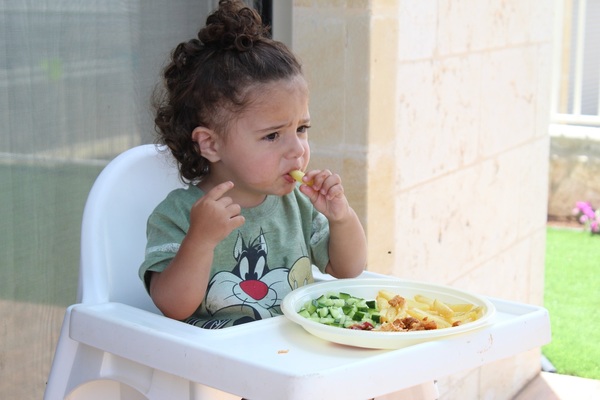Many parents appreciate the battle at mealtimes with a fussy, picky eater who refuses to try anything new.
UNSW Medicine’s Dr Jennifer Cohen, a paediatric clinical dietitian, who has over 15 years in the area, says it’s generally a normal part of childhood development.
She’s sharing her insights and tips on how to break the cycle.
“A child’s body is focusing on more mental development – talking, walking, becoming physically active. The theory is kids don’t need as much food – they’re not as hungry because they’re not growing as much,” she said.
“A related theory is that while there’s so much brain development going on, the sensory system almost shuts down and because eating is such a sensory experience – involving taste, touch, smell, sound – if your brain is occupied with other tasks rather than the senses, food just doesn’t taste as good or is not as enjoyable as it used to be.”
Dr Cohen said the one to two-year-old age group are in that danger zone.
“To add to the changes going on in their body, we also have a toddler’s assertiveness to consider: it’s like trying to get your child dressed and to put their shoes on – the more you want them to do it, the less likely they’re going to comply,” she said.
She said fussy eating includes a child eating a low variety of foods, or cutting out entire food groups.
Dr Cohen said parents needed to watch out for children who were fussy eaters from the moment they started on solid foods, including those who tended to remove foods but never went back to eating them.
Dr Cohen’s tips for dealing with fussy eaters
- Practice the division of responsibility: Your job at mealtimes is to provide the food you want your child to eat and when and where the meal is. It is the child’s job to decide whether they eat or not.
- Eat together as a family: Study after study shows that when parents eat food in front of their children, their child is more likely to want to eat that food.
- Considered not catered meals: Never cook separate meals to cater for your fussy eater and never assume your fussy eater “can just starve” if they refuse food – eating that food might be stressful and they might be physically unable to eat it. So, ensure each meal has some foods your fussy eater will eat, as well as new foods in order to regularly expose your child to something different.
- Family-style meals: New foods on a plate in front of a fussy eater can be stressful to them. Instead, place food in the centre of the table and let your child choose their own food. This is less stressful because it exposes the child to new foods without forcing them to eat those foods.
- Playing with food: Having your fussy eater take a bite of food is the last step in helping them. Allowing them to play with food lets your fussy eater feel comfortable with new foods and takes the stress away. They might even lick their fingers afterwards








